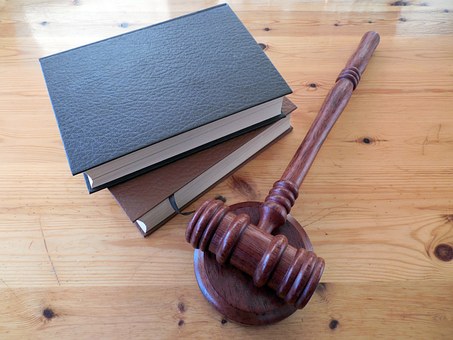Now Reading: CRUELTY (U/S 498A, IPC) – A Continuing Offence or Not?
-
01
CRUELTY (U/S 498A, IPC) – A Continuing Offence or Not?

CRUELTY (U/S 498A, IPC) – A Continuing Offence or Not?
On 9 April, 2019, the Three Judge Bench, comprising CJI Ranjan Gogoi, Justice L. Nageswara Rao and Justice Sanjay Kishan Kaul answering a reference pending for about seven years from a SLP filed against High Court, held that, “the courts at the place where the wife takes shelter after leaving or driven away from the matrimonial home on account of acts of cruelty committed by the husband or his relatives, would, dependent on the factual situation, also have jurisdiction to entertain a complaint alleging commission of offences under Section 498A of the Indian Penal Code.”
The SLP was filed against the High Court decision which held that cruelty punishable under Section 498A of the IPC is not a continuing offence, and thus it cannot be investigated or punished in a jurisdiction outside the one in which the matrimonial house of the complainant is situated.
The Honb’le bench considered the question arised from the SLP filed as RUPALI DEVI (APPELLANT) VS. ST. OF UTTAR PRADESH & ORS. [Criminal Appeal No. 71 of 2012] grouped with other appeals, “Whether a woman forced to leave her matrimonial home on account of acts and conduct that constitute cruelty can initiate and access the legal process within the jurisdiction of the courts where she is forced to take shelter with the parents or other family members”.
The Court answered the above question in affirmative. In order to derive the conclusion the Supreme Court also relied upon the Section 179 of the Code of Criminal Procedure and elucidated the scope of “cruelty” under Section 498A of IPC.
Under Section 179 of the Code of Criminal Procedure, if by reason of the consequences emanating from a criminal act an offence is occasioned in another jurisdiction, the court in that jurisdiction would also be competent to take cognizance.
In this instant case, the Court had to determine whether the exception carved out by Section 179 of the Code of Criminal Procedure had any application to confer jurisdiction in the courts situated in the local area where the parental house of the wife was located.
To determine the case, the Court had to analyse the Statement of Objects and Reasons of the Criminal Law (2nd Amendment) Act, 1983, which inserted Section 498A of the IPC. The object behind the amendment was to combat the increasing cases of cruelty by the husband and relatives of the husband on the wife which leads to the commission of suicides or grave injury to the wife so as to compel her or her relatives (from maternal side) to fulfil any unlawful demands. The Hon’ble Court stated that the stated reason has to be taken into consideration while answering to the question raised in this instant case.
The Hon’ble Court defining the crux of the scope of “Cruelty” observed that “Cruelty can be both physical or mental cruelty. The impact on the mental health of the wife by overt acts on the part of the husband or his relatives; the mental stress and trauma of being driven away from the matrimonial home and her helplessness to go back to the same home for fear of being ill-treated are aspects that cannot be ignored while understanding the meaning of the expression “cruelty” appearing in Section 498A of the Indian Penal Code. The emotional distress or psychological effect on the wife, if not the physical injury, is bound to continue to traumatize the wife even after she leaves the matrimonial home and takes shelter at the parental home. Even if the acts of physical cruelty committed in the matrimonial house may have ceased and such acts do not occur at the parental home, there can be no doubt that the mental trauma and the psychological distress cause by the acts of the husband including verbal exchanges, if any, that had compelled the wife to leave the matrimonial home and take shelter with her parents would continue to persist at the parental home. Mental cruelty borne out of physical cruelty or abusive and humiliating verbal exchanges would continue in the parental home even though there may not be any overt act of physical cruelty at such place.”
The Court held that the provision in Section 498A of IPC encompasses both the mental as well as the physical well-being of the wife.
Therefore even if the acts of the physical cruelty is committed in the matrimonial house, the psychological distress caused by the acts of the husband would continue to persist even at the parental home. Her sufferings at the parental home would be the consequence of the acts committed at the matrimonial home. The adverse effect on the mental health in the parental home would amount to commission of cruelty within the meaning of Section 498A at the parental home.
Further the Court emphasised that the consequences of the cruelty committed at the matrimonial home results in repeated offences being committed at the parental home. This is the kind of offences contemplated under Section 179 Cr.P.C which would squarely be applicable to the present case as an aswer to the question raised.
Therefore, the Honb’le Bench ruled that, “the courts at the place where the wife takes after leaving or driven away from the matrimonial home on account of acts of cruelty committed by the husband or his relatives, would, dependent on the factual situation, also have jurisdiction to entertain a complaint alleging commission of offences under Section 498A of the Indian Penal Code.








